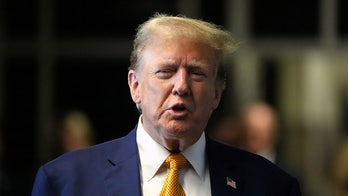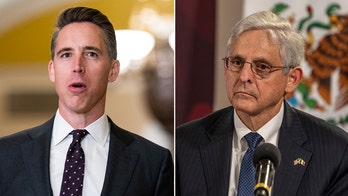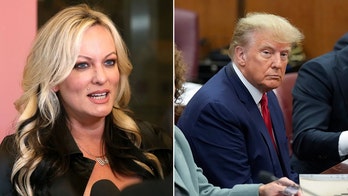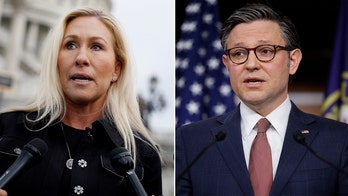President Obama told Associated Press in an interview Saturday that Mitt Romney’s new energy plan shows a ‘disdain for green energy.’ The President said ‘Romney will make good on his vow to end tax credits for wind power projects.’
The President went on to say “He [Romney] said that he would eliminate tax credits that are going to wind producers, even though we've doubled the production of wind energy. I suspect that he has to follow through on those commitments.”
In certain audiences on the campaign trail Romney says he favors federally funded basic research into green energy, but opposes subsidies and loan guarantees for specific technologies and projects. In other audiences, he is against it period.
Romney’s energy platform or “blueprint” calls for paring back regulations and speeding up permitting for energy projects, arguing this will benefit fossil fuels and renewable energy alike.
The blueprint lays out several policies to help meet his 2020 goal of no foreign oil. It would upend current oversight by handing states broad new powers to control development of various forms of energy on millions of acres of federal lands within their borders.
“States will be empowered to establish processes to oversee the development and production of all forms of energy on federal lands within their borders, excluding only lands specially designated off-limits,” the plan states. “State regulatory processes and permitting programs for all forms of energy development will be deemed to satisfy all requirements of federal law.”
Federal agencies would retain power to certify that state processes are adequate but the plan notes that the criteria would be “broad” and that states would have “maximum flexibility.”
Romney would cut all tax credits for wind and eliminate federal assistance for renewable energy projects. He would keep the $4 billion dollars a year in tax breaks and outright federal subsidies to oil. This is one of the reasons Obama said he shows a disdain for green energy.
Federico Pena, who was secretary of Energy in the Clinton administration, said “Only two days after a fundraiser hosted by the CEO of major oil companies, Romney is expected to defend billions in oil subsidies while opposing efforts to use oil more efficiently and develop homegrown alternative energy. We will never reach energy independence by turning our backs on homegrown renewable energy and better auto mileage.”
Romney said he wants to end importing foreign oil and thereby achieve energy independence by 2020. One of the key strategies of that policy according to Romney is to build the Keystone XL pipeline. He will approve it on the platform immediately after taking the oath of office.
The curious thing about that strategy is that the pipeline will bring Canadian oil to the gulf to be refines, much of it for export to china. How importing oil from Canada ends our dependence on “foreign” oil is quite curious. Canada is not part of the United States. Currently, much of our oil comes from Canada and Mexico.
Romney wants to roll back the fuel economy standards the President negotiated with automakers last year. The more miles per gallon a car gets, the less oil we need to import. Reversing the mileage standard will automatically mean we need more oil, and much of that will be imported. That is the goal of Romney and his oil company funders.
Romney blasted Obama for not allowing production of oil, but like most Romney charges, the facts do not bear that out. Oil production under Obama has grown and is higher than under George Bush. Romney said production has increased; production has dropped on federal lands and blames Obama. The fact is that gas companies have abandoned federal lands in favor of hydraulic fracturing (fracking) in shale formations on private land.
The election will in large part determine the future of green energy. A Romney administration will set it back for a decade at least in favor of coal and oil. It is up to the voters now.




